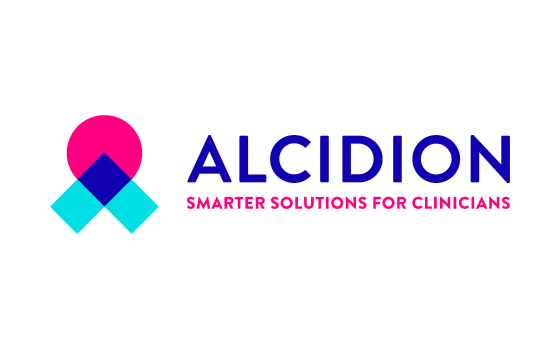 Opinion Article by Lynette Ousby, UK Managing Director, Alcidion.
Opinion Article by Lynette Ousby, UK Managing Director, Alcidion.There is a new energy emerging that might shake up the health tech market, and long-embedded challenges around siloed data and technologies.
Political will to move away from data being locked-in by deployed electronic patient record (EPR) systems has been reinforced in the NHSX draft strategy 'Data Saves Lives'.
One of the key ambitions of the data strategy is to give staff "easy access to the right information to provide the best possible care". And in the preceding months to the strategy being published, NHSX started an important dialogue to join forces with trusts to improve innovation in the EPR market, so that it better meets the needs of healthcare and the stakeholders, from clinicians to patients.
For health tech suppliers, we need to play our part in the conversation so that we are working with NHS organisations at all levels and it is extremely positive to hear NHSX inviting such engagement. Suppliers need to bring choice that will benefit each region and its respective trusts, agencies, care providers and ultimately patients. Vendors need to be viewed as part of the solution, rather than part of the problem - and for that to happen we need to be willing to work as partners in an open ecosystem.
Creating an open ecosystem EPR
Since coronavirus took hold in the UK, we have seen incredible dedication from health and social care staff, and some great collaboration across organisational boundaries.That spirit of co-operation and the new national data strategy creates an environment where we can all play our part to harness data to make improvements for staff, organisations and patients.
Healthcare organisations are still often hampered by disparate legacy systems and information that is held in silos, causing opaqueness and uncertainty, despite discussions around integration and interoperability having dominated conference agendas for years, if not decades.
We are seeing new willingness to move past words - but that too must be matched by vendors. What we need from healthcare technology providers is transparency, flexibility and the surfacing of data in ways that is convenient to users. And it is extremely motivating to see those requirements emerge in recent policy development and dialogue.
With integrated care systems (ICSs) due to be put on a legislative footing next year, time is pressing to ensure accessibility and useability of data. If ICSs are to be run in a cohesive manner, the technology of each constituent organisation must be able to communicate interactively. There needs to be a comprehensive, robust and open data orchestration layer that forms the foundation for whatever is required. And on that layer, a range of useful elements - or applications - can be built, that meet the needs in any given situation but that also, importantly, use that data to the benefit of the clinician and patient through the adoption of modern technologies and innovative capabilities.
Optimising the tech options
Once the infrastructure is in place, each health or care organisation should be able to seize the opportunities available to them and realise how technology might best be used.As emerging policy recognises, this means separating the data and application layers and utilising the cloud, so that important information is accessible from any location at any time, in a secure and appropriate manner. Unlocking data will also fuel innovation in supplier ecosystems that could lead to a shift from vendor lock-in to flexible options for providers in everything from clinical decision support, to e-observations, AI, natural language processing, task management, communications tools, and more.
At Alcidion, we have also been fortunate to participate in the evolution of the healthcare systems of Australia and New Zealand, where recognition of the value of data to aid clinical decision making has started to be realised. We are now collaborating with NHS trusts in the UK to help them create a digital ecosystem that meets their needs. This ecosystem will deliver clinician-facing technology that automates routine functions and presents information proactively. Modern ecosystems must provide the NHS with digital options that help alleviate the cognitive burden on clinicians that is often associated with historic cumbersome technologies which in some cases were built for business processes rather than clinical workflow.
New functions, more collaboration
So, what next for the NHS and ICSs? The creation of an open infrastructure, with separate data and application layers, to support organisations and staff on the ground, presents a phenomenal opportunity to overcome some of the big historic challenges in healthcare IT around data. Changing demographics with ongoing health and care requirements mean that services need to be continually reviewed and new options developed. What works now might not work in five or ten years, so we need to be proactive, flexible, and responsive.The COVID-19 pandemic has shown that collaboration is necessary, and agility can happen if there is a will to consider new angles. Healthcare professionals, commissioners and technology experts need to keep having the conversations of what else can be done. I hope that, collectively, we can build on the momentum for change, to create a partnership ecosystem filled with innovation and a healthcare environment no longer hampered by interoperability challenges.